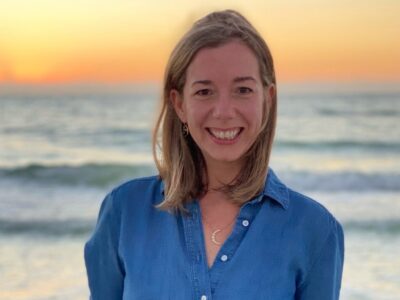
What is Equitable Origin and what is your role in the organization?
Equitable Origin (or EO) is a social enterprise dedicated to making oil and gas development projects more environmentally responsible. The company’s standards for social and environmental performance, collectively called the EO100™ Standard, are used to evaluate specific oil and gas production sites and certify them as responsible operations. In the context of EO certification “responsible” means adhering to industry best practices when it comes to respecting the rights and well-being of workers, local communities, and the environment. EO is essentially a startup (we only have 12 employees) with a unique and somewhat crazy idea, reducing damage done to people and the environment by oil and gas development through voluntary third-party standards. People tend to think of oil and gas development as “good” or “bad,” and don’t know that how it’s done makes a huge difference in terms of its risks and negative impacts. My job at EO is to educate people a little bit and explain how the EO100 Standard and our work can go a long way toward transforming the oil industry as a whole into a more responsible, transparent, and accountable sector. In short, I’m supposed to tell the world we exist and that our work is worth supporting and also make sure that oil and gas companies know our system is available to reduce their risk and improve their operations.
What are some of the lessons you learned during the MPA-ESP program that you apply to your work?
As its name implies, ESP is all about using science to inform environmental policy decisions in the real world. During the program, I learned that the “real world” includes business, politics, economics, and other disciplines that have huge influence on environmental practice and policy, even if they’re not directly related to environmental issues. EO’s approach to the problem of damaging oil and gas development is very much based in the same “real world,” where oil and gas development is happening everywhere, and expanding rapidly into new places, often without a lot (or any) regulation or oversight; often without the consent or even consultation of local communities. That’s what EO is working to change with our certification system. Also, what ESP alum could forget “what gets measured, gets done” after hearing it a thousand times over the course of a year? That’s the truism that I keep in mind whenever I’m explaining why performance standards are valuable—standards set measurable goals, and provide a rubric for evaluating social and environmental practices. When practices don’t meet the goal measurements, they get done better. And just like when I was enrolled in the ESP program, I make and deliver a lot of PowerPoint presentations to different constituencies.
Have the connections you made at the ESP program been helpful to you in accomplishing goals at EO?
Definitely. EO hosted a film screening and panel discussion at SIPA in early March that went really well, and we couldn’t have made it happen without the help of people in my ESP network! Several Columbia professors (including two from the Earth Institute) were kind enough to participate in the panel, and made for some interesting and productive discussion. It was also great to have access to current and past ESP students, who tend to share a sophisticated and pragmatic point of view to solving environmental problems—a perfect match for EO’s work.
What does the future look like for EO?
We just published the world’s first independent standards for responsible fracking and shale development. We published a first draft of our standards for public comment, and are hoping for lots of feedback from all stakeholders in the world of shale oil and gas development: industry, communities, researchers, regulators, and environmental nonprofits. It seems like everybody has a strong opinion on fracking, but few people are be focused on making the fracking that is happening—at hundreds of thousands of well sites around the U.S.—is being done in ways that minimize risks to people and the environment. We think our standards can make some important progress on that front.
****
Students in the MPA in Environmental Science and Policy program enroll in a year-long, 54-credit program offered at Columbia University’s School of International and Public Affairs, in partnership with the Earth Institute.
Since it began in 2002, the MPA in Environmental Science and Policy program has given students the hands-on experience, and the analytical and decision-making tools to implement effective environmental and sustainable management policies. The program’s 682 graduates have advanced to jobs in domestic and international environmental policy, working in government, private and non-profit sectors. Their work involves issues of sustainability, resource use and global change, in fields focused on air, water, climate, energy efficiency, food, agriculture, transportation and waste management. They work as consultants, advisers, project managers, program directors, policy analysts, teachers, researchers and environmental scientists and engineers.
Visit our website for more information: http://mpaenvironment.ei.columbia.edu/



